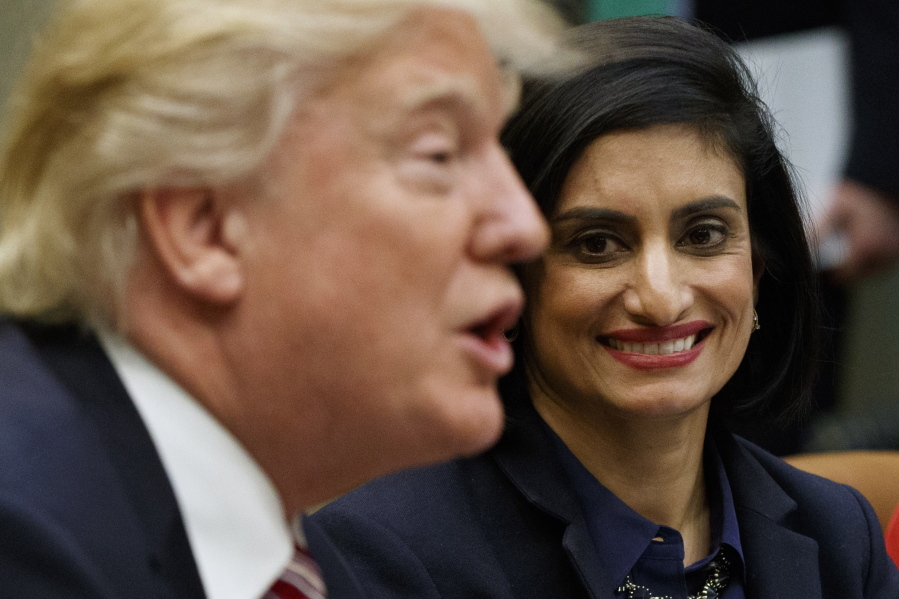WASHINGTON — Rewriting the rules on health care for the poor, the Trump administration said Thursday it will allow states to require “able-bodied” Medicaid recipients to work, a hotly debated first in the program’s half-century history.
Seema Verma, head of the Centers for Medicare and Medicaid Services, said requiring work or community involvement can make a positive difference in people’s lives and in their health. The goal is to help people move from public assistance into jobs that provide health insurance. “We see people moving off of Medicaid as a good outcome,” she said.
But advocates said work requirements will become one more hoop for low-income people to jump through, and many could be denied needed coverage because of technicalities and challenging new paperwork. Lawsuits are expected as individual states roll out work requirements.
“All of this on paper may sound reasonable, but if you think about the people who are affected, you can see people will fall through the cracks,” said Judy Solomon of the Center on Budget and Policy Priorities, which advocates for the poor.



